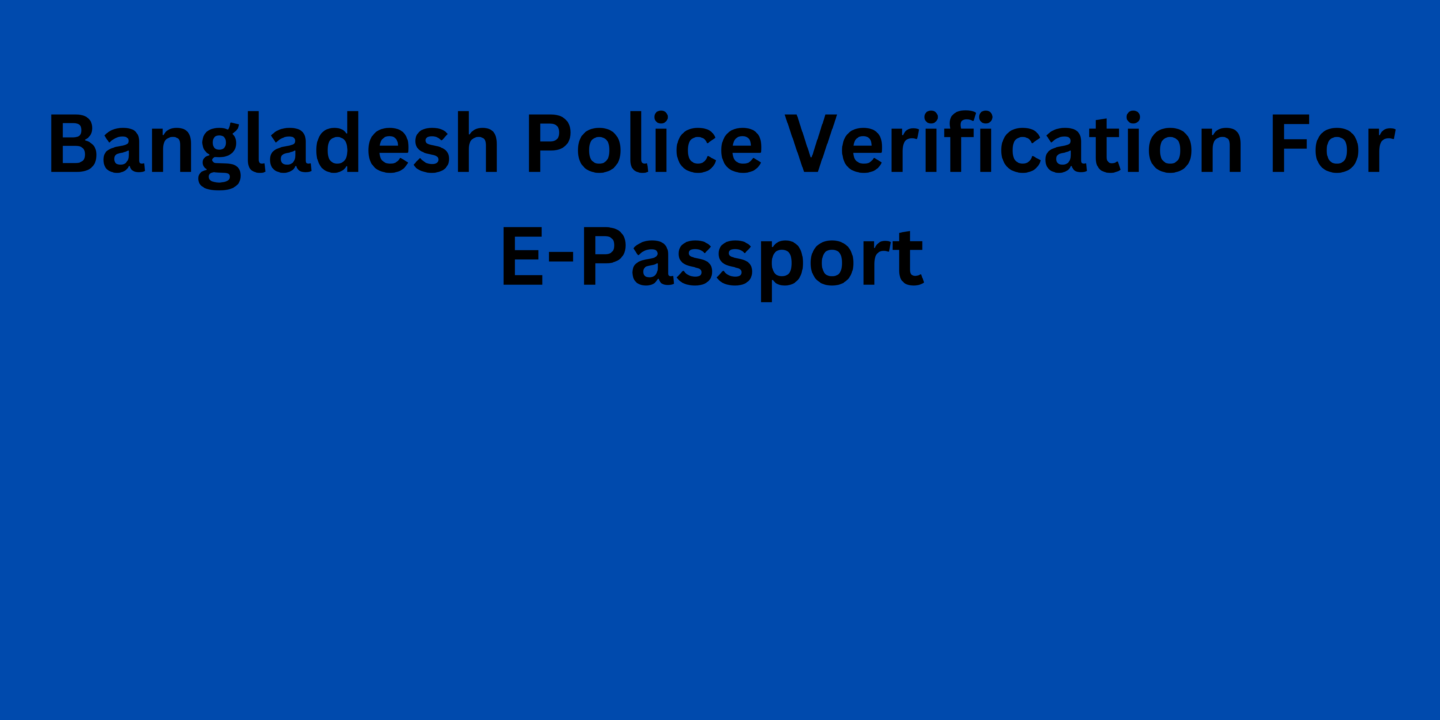
Bangladesh Passport
The Bangladesh passport is an electronic travel document that is bio metric, machine-readable, and compliant with ICAO. Bangladesh is the first nation in South Asia to provide all eligible residents with an electronic passport. The Immigration and Passport Department of the Ministry of Home Affairs is responsible for creating, printing, and issuing passport booklets.
41 distinct security elements, including holographic pictures etched in thin-film lamination that change color under light and appear to move, are included in this electronic passport with a microprocessor implanted.[6] The chip inside the electronic passport contains the holder’s bio metric and demographic data.
His data consists of the passport holder’s ten fingerprints, an iris scan of both eyes, a color photo of the bearer’s face, a digital signature, etc. [7] The Government of the People’s Republic of Bangladesh, or any of its diplomatic missions abroad, issues the e-passport to qualified Bangladeshi citizens. Depending on the applicant’s age, the passport’s validity is either five or ten years. Citizens via naturalization, ancestry, or birth.
Bangladesh police verification process
In Bangladesh, a police check is a requirement for acquiring a passport. The goal is to guarantee that a real citizen with a clean background receives the passport. Therefore, it is important to confirm the accuracy of the applicants’ information and status. Although the need is legitimate, it also becomes one of the main causes of difficulty for people looking for passports. Although passport applicants pay the necessary costs when submitting their applications, they typically additionally have to pay a sizable sum of money for police verification.
It has always been customary to pay the police who physically check applicants’ residences. The rate has increased over time. In rare circumstances, applicants are required to pay fees that are almost identical to those already paid.
In light of this, Chattogram Metropolitan Police (CMP) has launched a short-text message service (SMS) to inform those seeking passports. The applicant can now immediately get to know the police officer tasked with checking their information. Following completion of the verification, CMP additionally notifies the applicants via brief test messages as to whether the report is favorable. A passport applicant can currently check the verification status online. To locate the designated police officer, they must go to the SB office. The process is now simple thanks to SMS messaging.
The great service, launched by the CMP a few months ago, has already made life easier for people looking for passports. They are no longer in the dark regarding the verification process’s phase. Now kids are aware of where to go and who to call if necessary. Finding out about the applicants requires little effort on the part of the police officer. The action increases transparency in the police verification procedure, and passport applicants have already expressed gratitude to the CMP.
It also demonstrates that employing information and communication technology (ICT) to enhance government services is not a big deal. It merely requires the desire to do so. As a result, it is anticipated that metropolitan police in other parts of the nation would soon adopt the same strategy. There are numerous opportunities to further enhance the service. For instance, in addition to short-message service, passport applicants could also receive an email.
Finally, the time has come to implement a fully functional online verification system for individuals seeking a passport. Since all Bangladeshi citizens above the age of 18 are required to have a National Identification (NID) card in order to obtain a passport, this should suffice for conducting background checks. Additionally, all authorized mobile phone users have undergone biometric registration, resulting in the existence of a biometric database for the citizens. Furthermore, the police now routinely collect information on tenants in various cities, and local police stations already possess a database of resident data. It is essential to carefully synchronize and preserve all this information in order to create a comprehensive database. The usage of this database will, over time, gradually eliminate the need for a time-consuming physical verification system.



